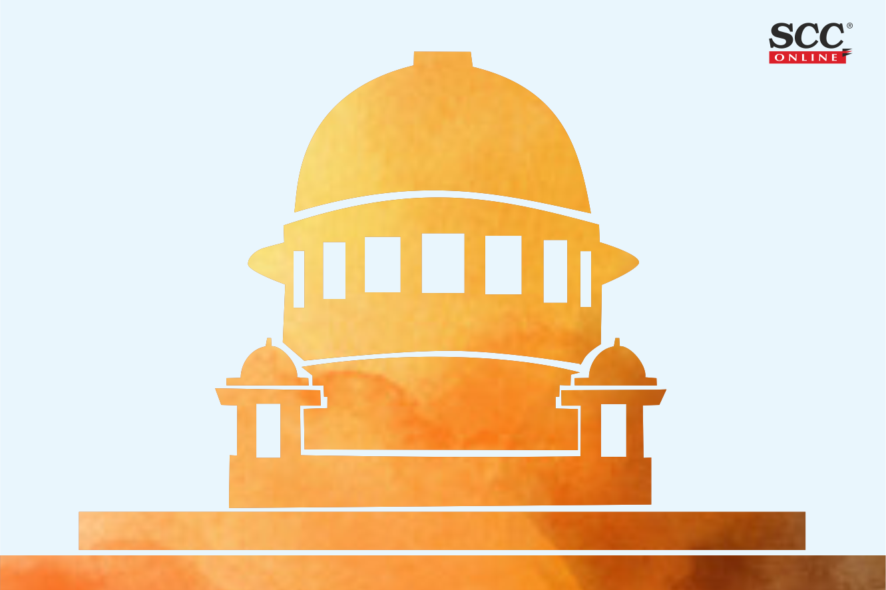Supreme Court: A 3-Judge Bench of N.V. Ramana, CJI and A.S. Bopanna and Hrishikesh Roy, JJ. upheld the judgment of the Madras High Court passed in a second appeal whereby it had reversed the order of the first appellate court granting injunction in favour of the appellant−plaintiff in a property dispute. Rejecting the contentions of the appellant regarding propriety of High Court’s exercise of jurisdiction in second appeal under Section 100 CPC, the Supreme Court observed:
“[M]erely because the High Court refers to certain factual aspects in the case to raise and conclude on the question of law, the same does not mean that the factual aspect and evidence has been reappreciated.”
The Supreme Court was deciding an appeal filed against the judgment of the Madras High Court passed in the second appeal preferred by the respondent−defendant. The plaintiff had filed an original suit seeking perpetual injunction to restrain the defendant from interfering with his peaceful possession and enjoyment of the suit property. The plaintiff claimed that he had been enjoying the suit property for a period of forty years by paying kist. The defendant disputed the right claimed over the suit property by the plaintiff.
The trial court dismissed the suit. The plaintiff preferred a regular first appeal under Section 96 CPC before the first appellant court. Placing much reliance on the kist receipts produced by him, the first appellate court concluded that the plaintiff was in possession of the suit property. Thereafter, the defendant filed a second appeal under Section 100 CPC before the High Court. The High Court framed a substantial question of law, as to whether the suit without the prayer for declaration is maintainable when especially the title of the plaintiff is disputed. Having taken note of rival contentions, the High Court concluded that the substantial question of law had substance, and therefore set aside the judgment of the first appellate court. Aggrieved, the plaintiff approached the Supreme Court.
The appellant contended that the parameter for interference by the High Court in the second appeal under Section 100 CPC is well established and the High Court cannot travel beyond the same and advert to reappreciate the evidence on factual aspects. It was contended that when the first appellate court, which was the last court for appreciated of facts, had recorded its finding, the same could not be interfered by the High Court on reappreciation of evidence.
Summarising the legal position on the subject, the Supreme Court reasserted the position that in a second appeal under Section 100 CPC there is very limited scope for reappreciating the evidence or interfering with findings of fact rendered by trial court or the first appellate court, and therefore it was necessary to see whether the High Court in the instant case breached the settled principle.
The Supreme Court noted that the findings by the trial court and the first appellate court were divergent. The trial court concluded that the kist receipts would not establish plaintiff’s possession, whereas the first appellate court in fact placed heavy reliance solely on the kist receipts. The Court observed:
“When such divergent findings on fact were available before the High Court in an appeal under Section 100 CPC though reappreciation of the evidence was not permissible, except when it is perverse, but it was certainly open for the High Court to take note of the case pleaded, evidence tendered, as also the findings recorded by the two courts which was at variance with each other and one of the views taken by the courts below was required to be approved.”
The Court said that question of law for consideration will not arise in abstract but in all cases will emerge from the facts peculiar to that case and there cannot be a strait jacket formula.
Even otherwise, the Supreme Court found that the plaintiff’s possession of the suit property was not established. Further, the Court was of the view that the first appellate court misdirected itself and proceeded at a tangent by placing burden on the defendant.
In such view of the matter, the Supreme Court held that it would not be appropriate to interfere with the judgment of the High Court which was in consonance with the fact situation in the case. The appeal was dismissed. [Balasubramanian v. M. Arockiasamy, 2021 SCC OnLine SC 655, decided on 2-9-2021]






